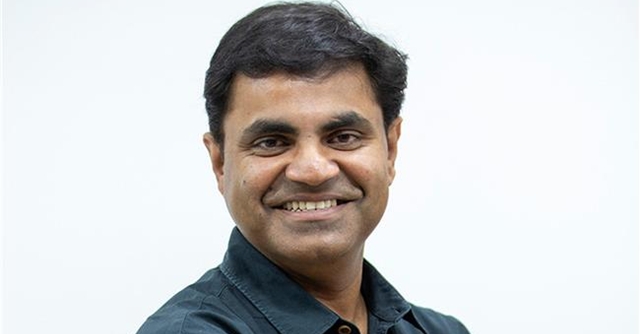
AI enables quick prototyping before full implementation: Publicis Sapient’s Sailesh Raghavan


Publicis Sapient is the digital transformation company under the French marketing giant Publicis. It has been operational in the country since the turn of the century working with a range of clients from different sectors and industries. As generative AI gains wind, Publicis Sapient is gearing up for the shift in the technology paradigm shift, said Sailesh Raghavan, Vice President of Technology.
“Over the past three to six months, our primary focus has been on integrating Artificial Intelligence (AI) into our existing processes. From a go-to-market perspective, our strategy has centered on positioning AI as a transformative force reshaping business models,” said Raghavan.
Publicis Sapient operates on five key pillars — Strategy, Product, Experience, Engineering, and Data — collectively known as SPEED. Each of these pillars plays a crucial role in shaping AI-driven solutions, both in terms of impact and integration, he added.

Some of the recent projects that Publicis Sapient has worked on include implementing human-centric AI-powered search experiences for hotel and resort chain Mariott; an AI-powered "chat botanist" for UK-based Royal Horticultural Society (RHS) that helps users identify plants, diagnose issues, and plan future purchases via an app and chatbot; and enhancing Goldman Sach’s transaction banking platform with AI. Other clients include firms like Canadian supermarket chain Loblaws and British retail giant Tesco. “Across these projects, we’ve seen efficiency gains of 25–30% in the initial phases,” said Raghavan.
Legacy modernisation
Raghavan observed that AI has fundamentally changed how digital transformation is approached, particularly in adopting a ‘fail fast, recover fast’ strategy. “Previously, even a minor change required extensive planning — listing backlog items, mapping dependencies, and creating a large-scale transformation roadmap. Now, AI enables rapid prototyping, allowing us to test ideas quickly before committing to a full-fledged implementation,” he said.
Instead of planning for a year, the focus is on short, iterative cycles — perhaps a month at a time. Once a concept proves viable, it is broken down further, identifying repetitive tasks that can be automated with AI agents. This approach makes transformation more agile and manageable.

“A great example is legacy modernisation. We recently worked with a client whose database was over 20 years old — burdened by an outdated, massive codebase with no original developers left to guide migration. Traditionally, tackling such a system would take years. With AI, we’ve adopted a more incremental, efficient approach, making modernisation faster and more structured,” he explained.
Speaking further on legacy modernisation, Raghavan said that there is a growing shift, particularly in the financial sector, where clients are finally addressing long-standing technology challenges. Previously, these discussions were sidelined due to cost and complexity, but with AI in the mix, the conversation is now on the table.
“Beyond finance, we're also seeing increased interest from the healthcare sector, where clients are experimenting with AI through small proof-of-concept projects. There’s a growing trust in AI’s potential, with more businesses willing to explore its impact before fully committing.”
AI talent

New research from Bain & Company in March found that AI-related job postings have risen by 21% annually since 2019, with compensation increasing by 11% each year.
As work continues to evolve the demand for talent will also change. “AI expertise hasn’t become a hiring showstopper yet, but within the next three to six months, it will likely be essential — an absolute must-have. The demand for specialists in narrow fields, like a front-end engineer solely focused on React, will diminish. Instead, we’ll prioritise engineers who understand the full journey from requirements to production and can leverage AI to manage and adapt across different stacks.”
This shift doesn’t mean Publicis Sapient will hire fewer people; rather, the type of talent is sought will evolve, he added. “We’ll focus on AI-driven engineers who can work across domains, while only a few deep specialists will remain. The goal isn’t to reduce headcount but to deliver more value to clients within the same time and budget, ensuring we stay ahead of the curve,” he concluded.

